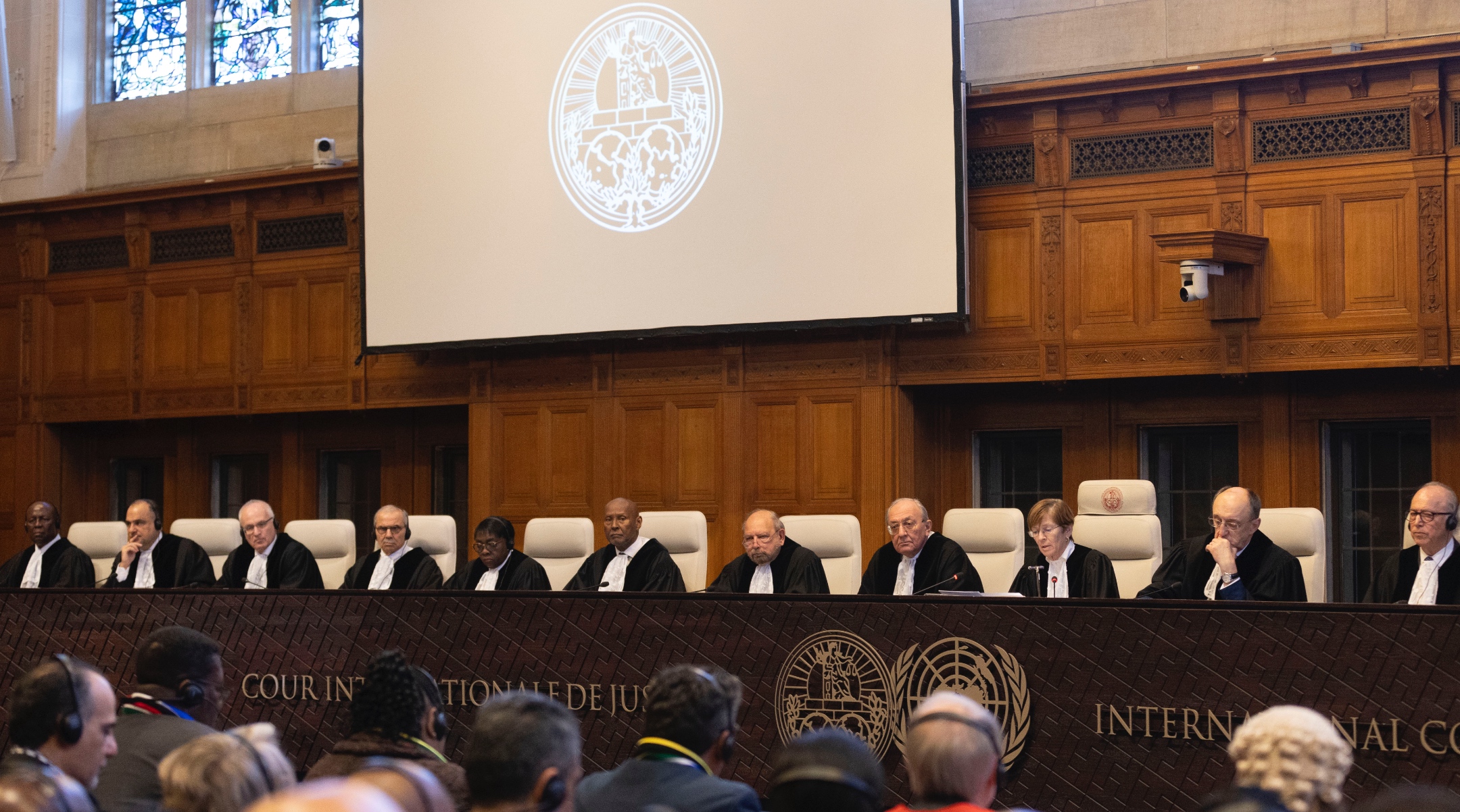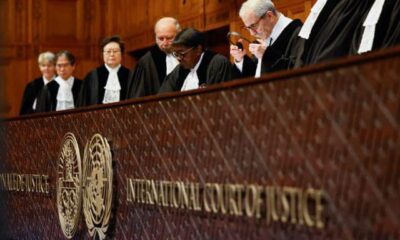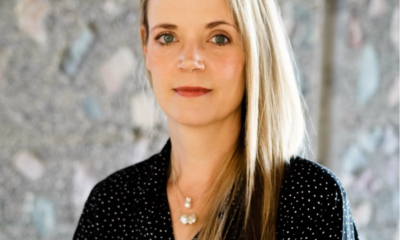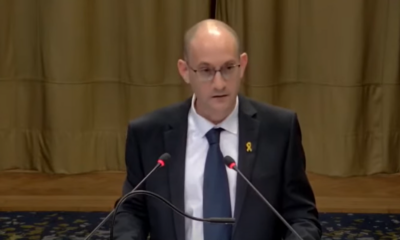
News

ICJ genocide case leaves both sides claiming victory
“The question of genocide is a tricky one,” said Jakub Nowakowski, the director of the Cape Town Holocaust & Genocide Centre. “In spite of horrible things happening in Gaza, it’s not a genocide in my view. There’s the important question of intent to consider. Did Israel set out deliberately to exterminate a target group? No. In the Holocaust, there was nothing on earth the Jews could do not to be killed. They couldn’t surrender. Unfortunately, it’s far too easy to call everything a genocide.”
The term “genocide” was in the spotlight in The Hague. The South African government was quick to declare victory last Friday, 26 January, when the International Court of Justice (ICJ) delivered its provisional judgement in South Africa’s case accusing Israel of genocide. The ICJ didn’t say Israel was guilty of genocide – and wasn’t meant to – and it didn’t order a ceasefire in Gaza. This was the first prize sought by South Africa. Nevertheless, South Africa has shifted the narrative, and Israel will be tainted by the tag of genocide going forward. Yet the order’s wording also gave Israel and its supporters enough to claim a win themselves, and they are speaking out.
Israel’s ad hoc judge at the ICJ, Aharon Barak, wrote in his opinion, “Genocide is more than just a word for me. It represents calculated destruction and human behaviour at its very worst. It’s the gravest possible accusation, and is deeply intertwined with my personal life experience.”
Barak noted, “It’s concerning that certain Israeli officials have used inappropriate and degrading language” which will have to be investigated. “However, to infer an intent to commit genocide from these statements, which were made in the wake of horrific attacks against the Israeli population, is plainly implausible.”
The key “provisional measure” sought by South Africa was that “the State of Israel shall immediately suspend its military operations in and against Gaza”. This wasn’t granted. Nor was South Africa’s demand that Israel “take all reasonable measures within their power to prevent genocide”. The much-sought-after ceasefire wasn’t ordered, allowing Israel to continue its military operations against Hamas in Gaza.
The order did call on Israel “in relation to Palestinians in Gaza, [to] take all measures within its power to prevent the commission of all acts” within the scope of the Genocide Convention, including killing, maiming, causing mental harm, or preventing births. It was ordered to punish those responsible for incitement, provide aid to Gaza, and report to the court within a month.
The ICJ also called for the immediate, unconditional release by Hamas of all hostages – not a measure South Africa sought.
Israel Prime Minister Benjamin Netanyahu reiterated Israel’s “inherent right to defend itself” after the ruling. He added that the “vile attempt to deny Israel this fundamental right is blatant discrimination against the Jewish state, and it was justly rejected”. He called the genocide charge “false” and “outrageous”.
Said Nowakowski, “Coming from Poland, I spent my life in the shadow of Auschwitz. I’ve seen the places designed with the sole purpose of killing people. I’m concerned that the Holocaust and genocide are being used as tools to achieve certain goals.
“Growing up in Eastern Europe,” Nowakowski said, “I cannot stop wondering if South Africa is so sympathetic and horrified by what’s happening in Gaza, why haven’t we seen the same response to what has been happening in Ukraine for the past two years? Why is the South African government not equally audible?”
Gavin Rome, a senior advocate in Johannesburg, said the judgement in general was “unimpressive”.
“It was poor,” Rome said. “For example, to quote [Israeli President Isaac] Herzog’s speech as an example of plausible genocidal intent was to take it out of context and merely adopt South Africa’s narrative without regard to Israel’s response. The ruling also didn’t articulate why the totality of relief sought by South Africa wasn’t granted. This could have been a good place to justify Israel acting in self-defence.”
Mark Oppenheimer, an advocate at the Johannesburg Bar told the SA Jewish Report, “The judgement sounded pretty appalling for Israel as it was being delivered. The court picked facts that were favourable to South Africa’s case and ignored the defence of Israel. But by not granting a ceasefire, the relief was entirely meaningless and redundant, as the dissenting Ugandan judge [Julia Sebutinde] wrote.
“To say that the order is akin to a ceasefire is the worst distortion I’ve ever heard,” Oppenheimer said. “It’s quite clear if you read the order. It says Israel can’t engage in genocidal conduct. It doesn’t say to desist from doing it. In other words, it doesn’t say stop doing it, because there’s no finding at all that Israel has been engaged in genocide.”
Jewish communal organisations have heavily criticised the South African government’s stance. A South African Jewish Board of Deputies press statement said it welcomed the ICJ’s “recognition of Israel’s right to defend its citizens by denying the ANC [African National Congress] government’s request for a ceasefire. We are saddened by our government not playing a more constructive role in engaging both sides, as it has in every other conflict, to help to bring an actual end to this war.”
Rolene Marks, the national spokesperson for the South African Zionist Federation, wrote in a press release, “[The] interim ruling by the ICJ is a blow to South Africa’s political gambit to falsely label Israel’s acts of self-defence as genocide. The court only looked at potential emergency measures, and Pretoria’s political stunt will be shown for the farce that it is.
“Hamas’s strategy is to use civilians as human shields and then celebrate any resulting harm as propaganda,” Marks said. “The measures granted are in fact what Israel has proven to be doing already.”
“This [case] isn’t something to be proud of,” Oppenheimer said. “To my mind, what this is, really, is a cynical exercise to try and accuse Israel of a blood libel – a state that was formed because of a genuine genocide, to accuse it of genocide under circumstances in which it’s prosecuting a just war against an internationally recognised terror group that performed the worst atrocities since the Holocaust. There’s also very good reason to believe that there are devious motives behind this litigation” – repeating the accusation that the Iranians have bankrolled the ANC in exchange for more vocal support for the Palestinians.
Sebitunde wrote in her dissenting opinion, “South Africa hasn’t demonstrated, even on a prima facie basis, that the acts allegedly committed by Israel, and of which the applicant complains, were committed with the necessary genocidal intent and that, as a result, they are capable of falling within the scope of the Genocide Convention. I also must agree that any ‘genocidal intent’ alleged by the applicant is negated by (1) Israel’s restricted and targeted attacks of legitimate military targets in Gaza; (2) its mitigation of civilian harm by warning them through leaflets, radio messages, and telephone calls of impending attacks; and (3) its facilitation of humanitarian assistance.”
“There’s no question that South Africa has shifted the terms of the debate, and the application wasn’t dismissed as Israel argued it should be,” said Rome. “South Africa’s actions will give wind to the sails of those who claim ‘Zionism is racism’, and that the creation of the state of Israel is a crime.”










